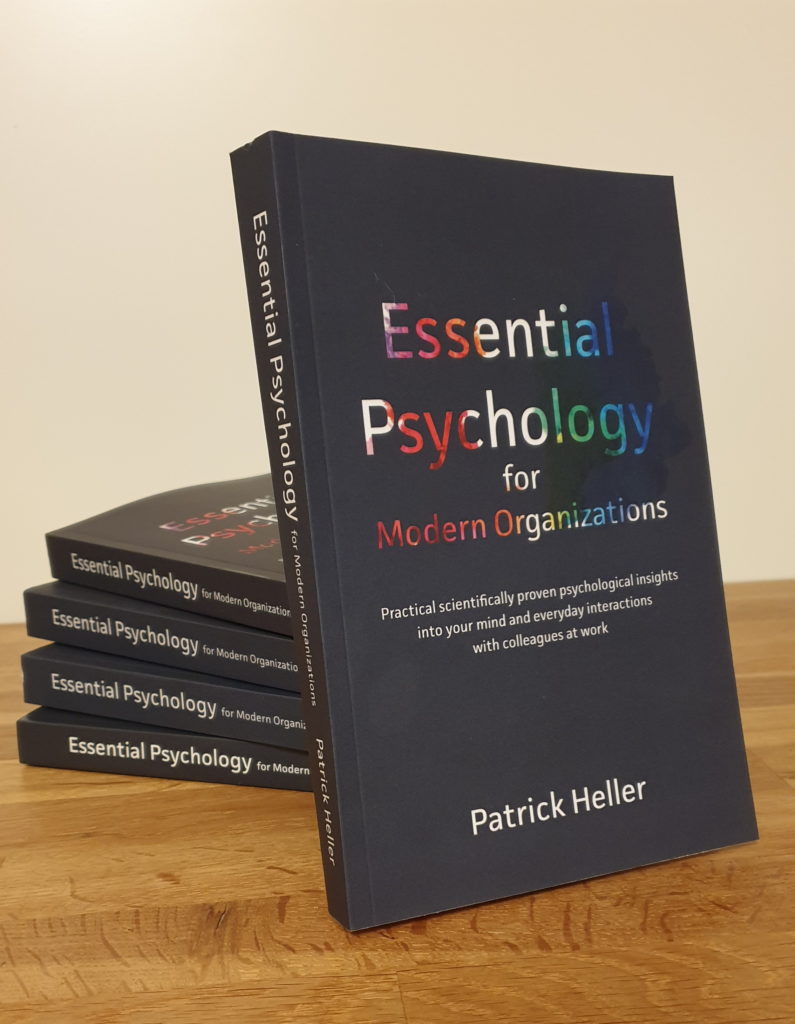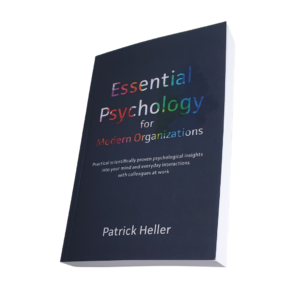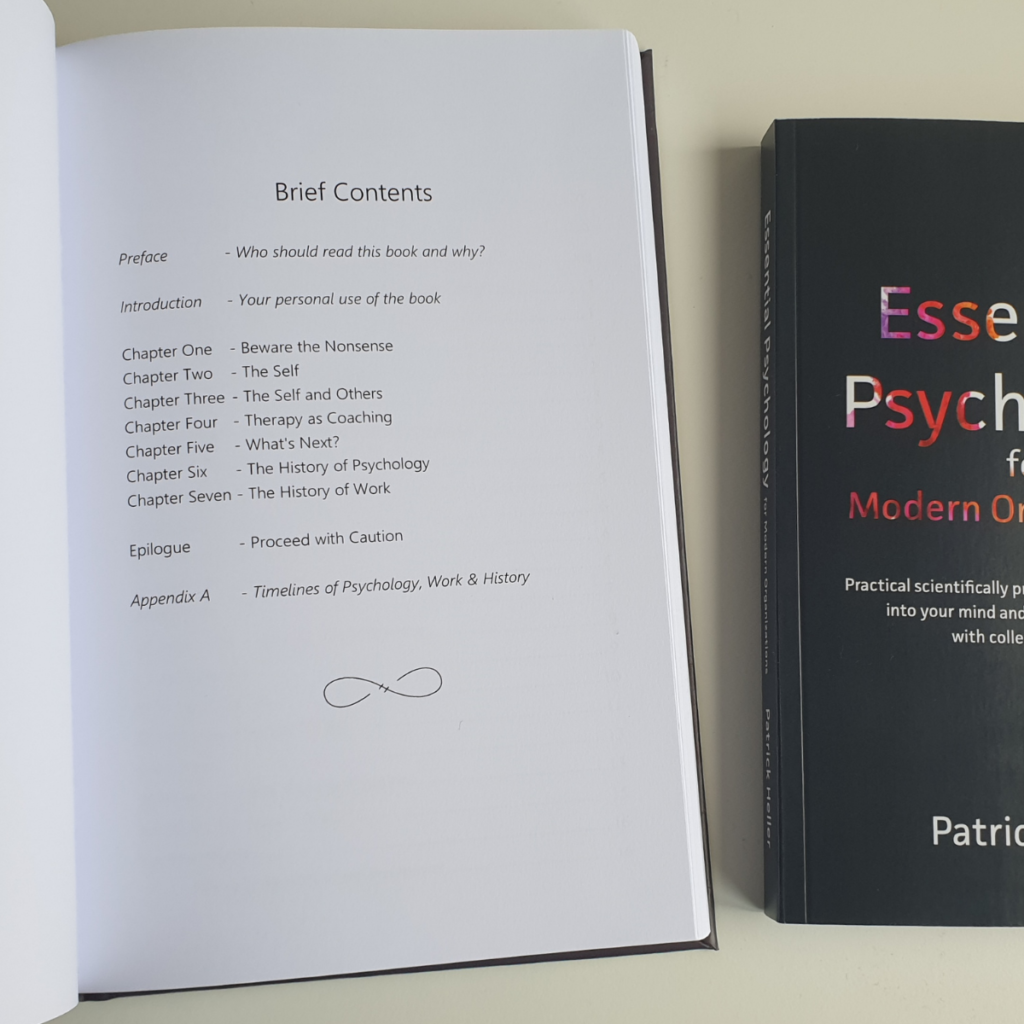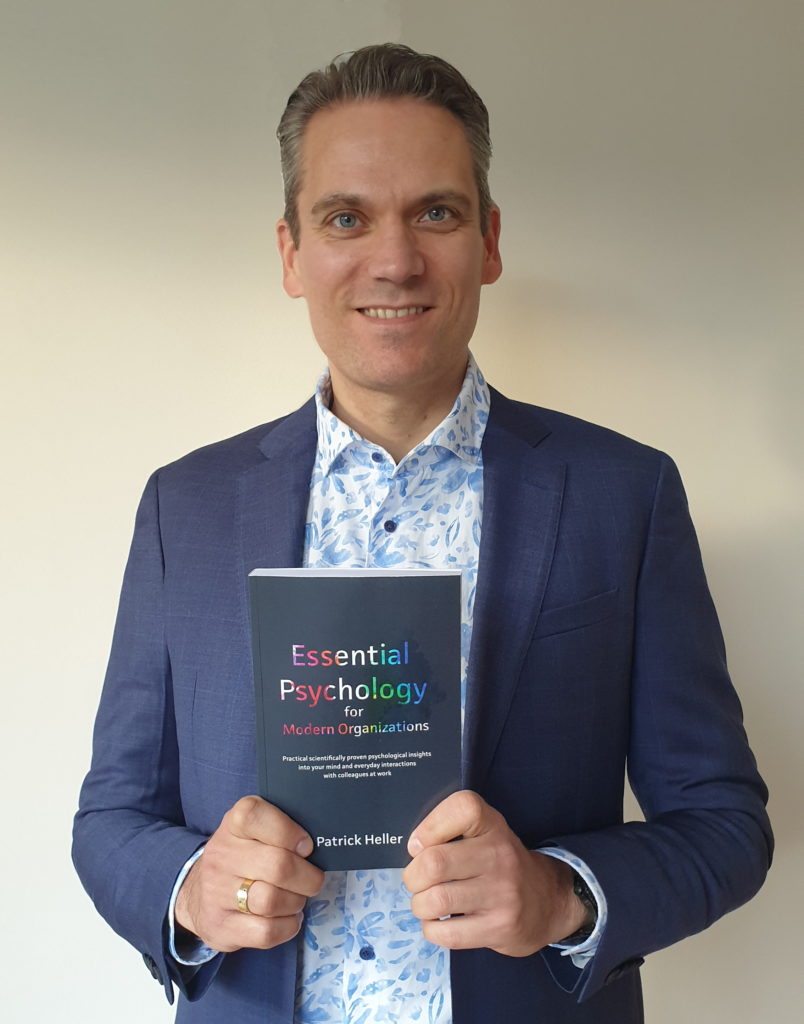Explore Psychology...
You are able to choose between
a hardcover version,
a paperback version, or
an ebook version.

AVAILABLE NOW!
Yes! Finally, you can get your hands on the paperback version of my book Essential Psychology for Modern Organizations!
You can order the book worldwide, through Amazon, BoekenBestellen.nl, Barnes & Noble, and lots more!
Happy reading everyone! Curious to find out what you think of the content!
AMAZON:
Netherlands: https://www.amazon.nl/Essential-Psychology-Modern-Organizations-scientifically/dp/B08NP12D77/
USA: https://www.amazon.com/Essential-Psychology-Modern-Organizations-scientifically/dp/B08NP12D77/
UK: https://www.amazon.co.uk/Essential-Psychology-Modern-Organizations-scientifically/dp/B08NP12D77/
BOEKENBESTELLEN.nl (Netherlands):
https://www.boekenbestellen.nl/boek/essential-psychology-for-modern-organizations/
BARNES & NOBLE (USA, Canada):


Hardcover available!
The HARDCOVER version is now available!
In the Netherlands you can buy it from https://www.boekenbestellen.nl/boek/essential-psychology-for-modern-organizations-hardcover/
In the US & Canada you can order it from:
AMAZON:
https://www.amazon.com/Essential-Psychology-Modern-Organizations-scientifically/dp/B09JJF9GS1/
BARNES & NOBLE:

Essential Psychology for Modern Organizations
Do you work as a professional in a modern organization and have you contemplated on a regular basis how useful it would be to be able to understand the human mind and behavior better?
Are you skeptical about the clickbait wonder solutions you find in social media and are you serious about your profession? Then you are well-advised to stick with science. The strength of this work lies in linking deep knowledge of modern-day organizations with clear-cut scientifically backed-up widely professionally recognized psychology.
If you’re looking for practical applications of psychological insights in your everyday interaction with colleagues, then find out about the intriguing cutting-edge between your everyday work experience and scientifically proven psychology.

Here you can read a short excerpt about stereotypes.
Excerpt:
“Stereotypes are related to prejudice and have a negative connotation, which is not necessarily correct. Stereotypes are very useful in our everyday life.
As a matter of fact, we would probably not survive without prejudice or stereotypes. From likeness to other members of the same group we infer meaning that is often correct. For instance, if we see an apple, we are not likely to have ever seen this particular apple, and maybe not even this species of apple, but we recognize it as part of the group of fruit which are apples. From this likeness we infer that we can eat the apple and that it will be sweet and tasty. It might be a poisonous apple, but that is not very likely. We see a piece of furniture that resembles a chair and we infer from its likeness to other furniture in the group of chairs that we can sit on it. The chair might collapse, but in all likeliness, we can sit on it. If we’d have to investigate and test every chair before sitting down, meetings at work would take even more time than they already do. Instead, our prejudice about chairs is probably right. The stereotype of a chair as a piece of furniture you can sit on will be correct most of the times throughout your life.”

Another excerpt, from chapter three, about the self and others:
“Austrian social psychology pioneer Fritz Heider (1896-1988) noticed that people tend to give too much weight to personality in comparison with the circumstances someone finds themselves in at the moment. […]
This common bias goes so far that experiments have shown that even if you divide a group of people randomly in two subgroups of managers and clerks and have them perform tasks accordingly, observers will rate the “managers” as higher in leadership, more intelligent, more assertive, et cetera. […]
We should be careful to recognize the fundamental attribution error when we observe people’s behavior who have a certain role inside the organization. We might easily assume a tester is a very critical person who will always find something to nag about, just because they will display such behavior on a daily basis – exactly because it is their job to be critical and find every and any thing that is wrong with the (computer) system. […]”

The first copy has arrived...
Ta-da! The first paperback author copy has arrived!
After months of work – and many late-night hours – it feels good to finally have a tangible result of 320 pages in my hands.
Just a few more days before my book “Essential Psychology for Modern Organizations” is available worldwide!
You will be able to choose between a hardcover version, a paperback version, or an ebook version – your choice!
